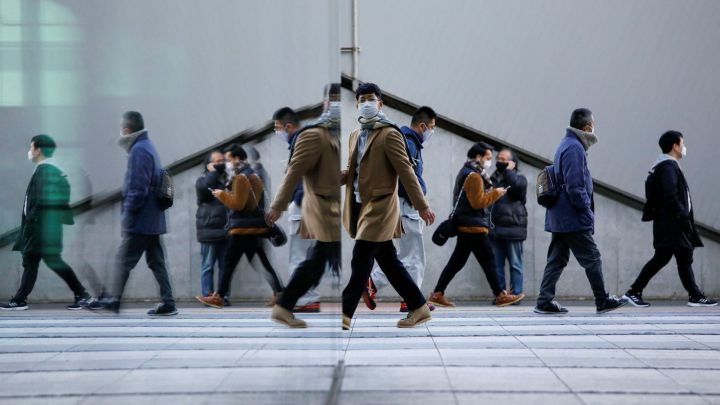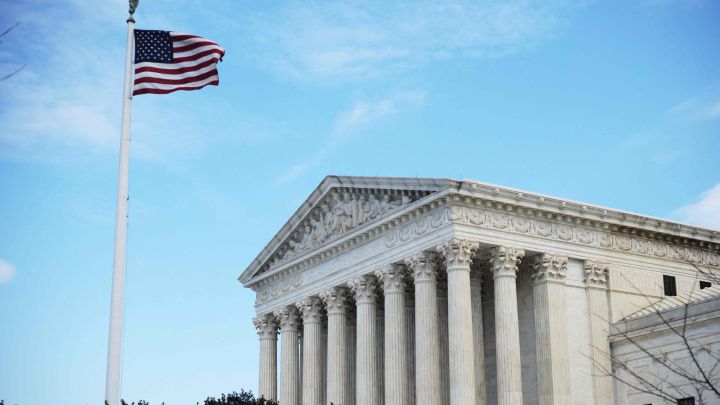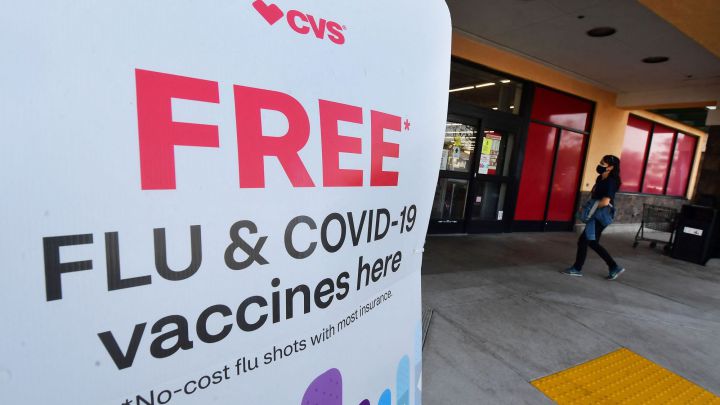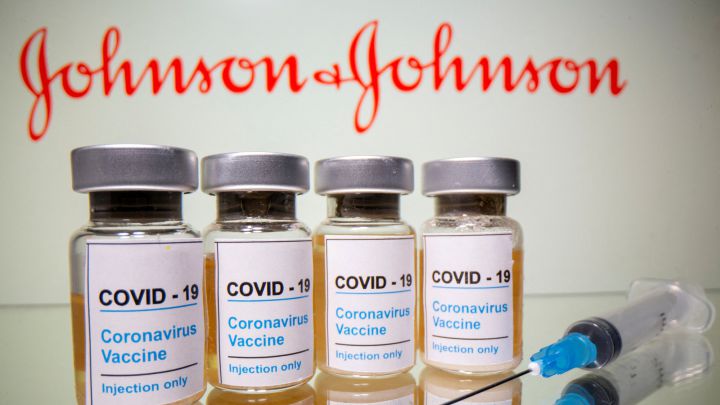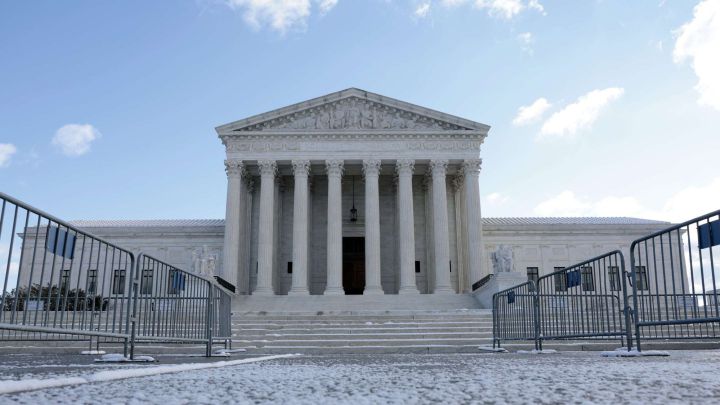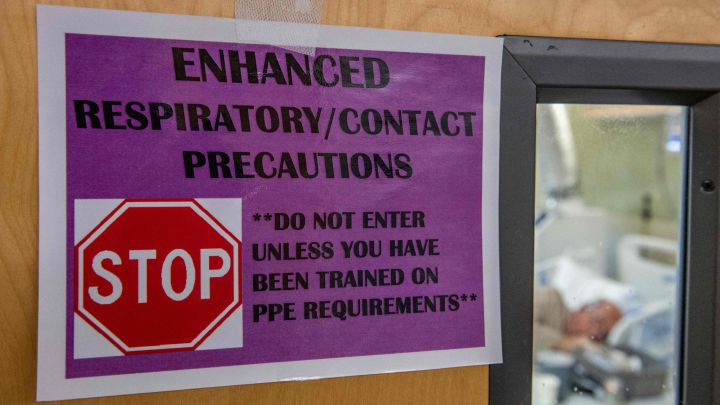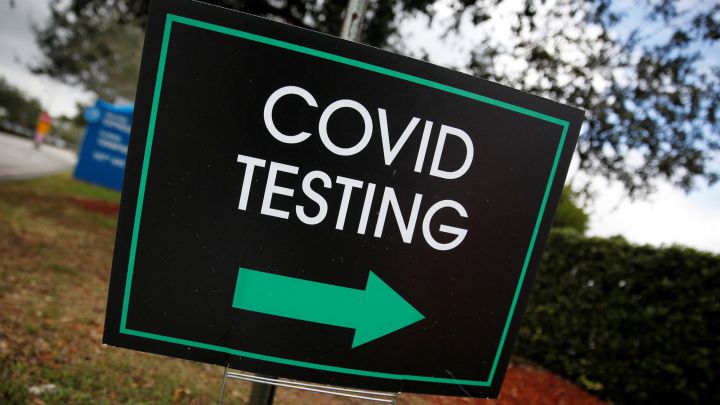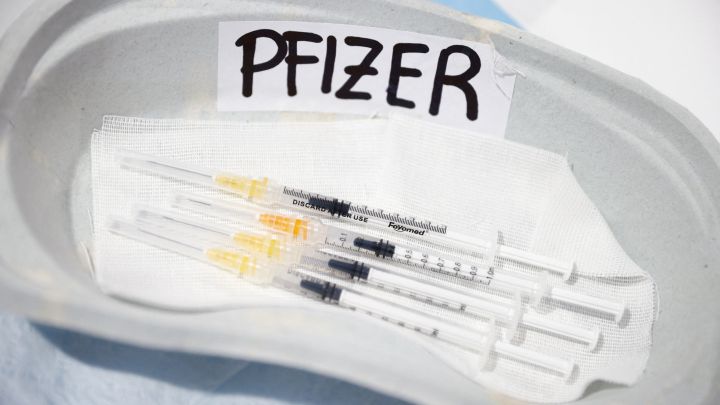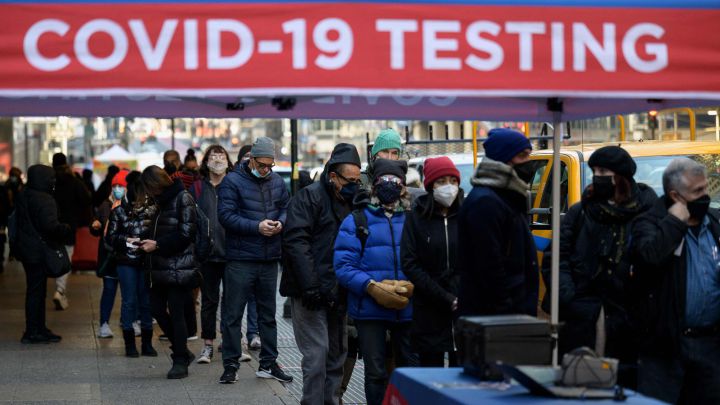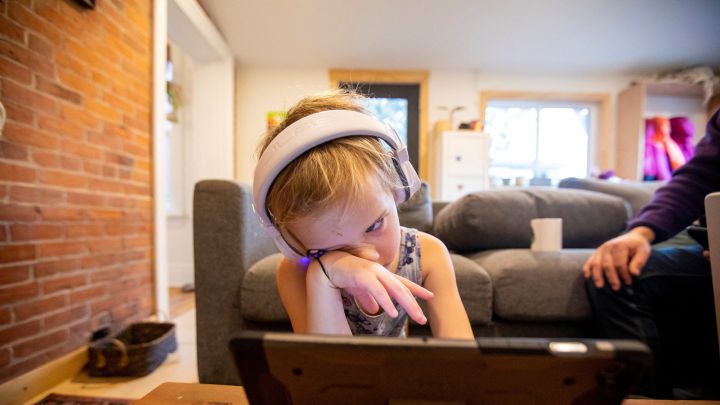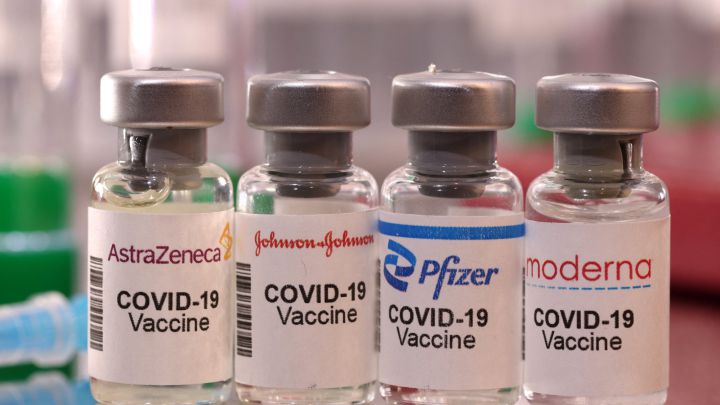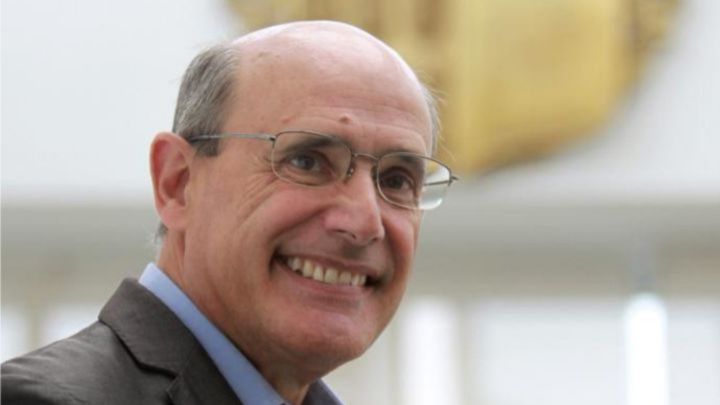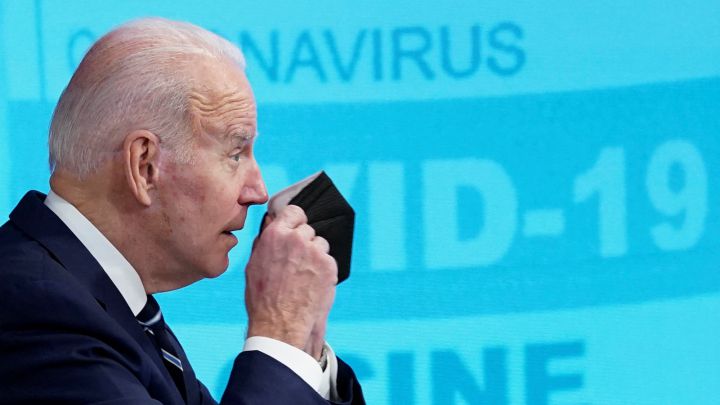Omicron variant | News summary for 18 January
Latest news and information on the spread of the Omicron variant of covid-19, including updates on cases and deaths, restrictions, vaccines and boosters.
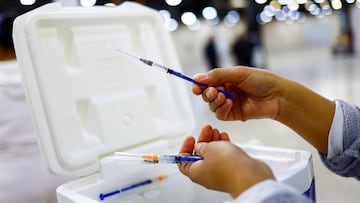
Show key events only
Omicron covid-19 variant headlines:
- Surgeon General says that Omicron cases have yet to peak in the United States
- New data shows many people with Omicron are contagious for more than five days
- China says that due to the Omicron variant, tickets to the Winter Olympic Games will not be sold to the public
- Site to order at home rapid antigen tests in the US will go live on 19 January at COVIDTests.gov
- Omicron "will find just about everybody", Dr Fauci says
- CDC confirms N95 masks are the safest
General news and information
- When can you get your covid-19 booster vaccine after an infection with Omicron?
- Public health experts discuss possibilities of long covid from the Omicron variant.
- Vaccine mandates for workplaces with over 100 employees struck down by the Supreme Court
- Experts believe California will soon see its Omicron peak.
- Is it normal to experience armpit pain after receiving the vaccine?
Key websites:
- The Centers for Disease Control and Prevention
Further reading:
British PM Johnson set to lift Covid-19 rules
British Prime Minister Boris Johnson is set to end most Covid-19 measures introduced to curb the rapid spread of the Omicron variant in England as he looks to live with the virus and fully reopen the economy after an apparent peak in cases. Britain was the first country to limit international travel over the Omicron variant, raising alarm bells about its mutations, and in December introduced work at home advice, more mask-wearing and vaccine passes to slow its spread. But while cases soared to record highs, hospitalisations and deaths have not risen by the same extent, in part due to Britain's booster rollout and the variant's lesser severity.
Health minister Sajid Javid said on Tuesday Britain had likely reached the peak in both cases and hospitalisations, with the so-called Plan B measures due to expire in a week. "I'm cautiously optimistic that we'll be able to substantially reduce measures next week," Javid said in parliament.
Johnson will address parliament on Wednesday on next steps for Plan B and hopes to reset his agenda following furore over the lockdown gatherings at his office, which has some in his party plotting to remove him. Johnson admitted he attended a gathering in the garden of his Downing Street office and residence in May 2020 while social mixing was banned. The lifting of Plan B measures, along with Johnson's navigation of Omicron without resorting to stringent lockdown, could help him appease vocal opponents of restrictions in his own party amid the party unrest.
"Decisions on the next steps remain finely balanced," a government spokesperson said. "The Omicron variant continues to pose a significant threat and the pandemic is not over. Infections remain high but the latest data is encouraging, with cases beginning to fall."
Johnson has faced criticism for his handling of the pandemic overall, and Britain has reported 152,513 deaths, the seventh highest total globally.
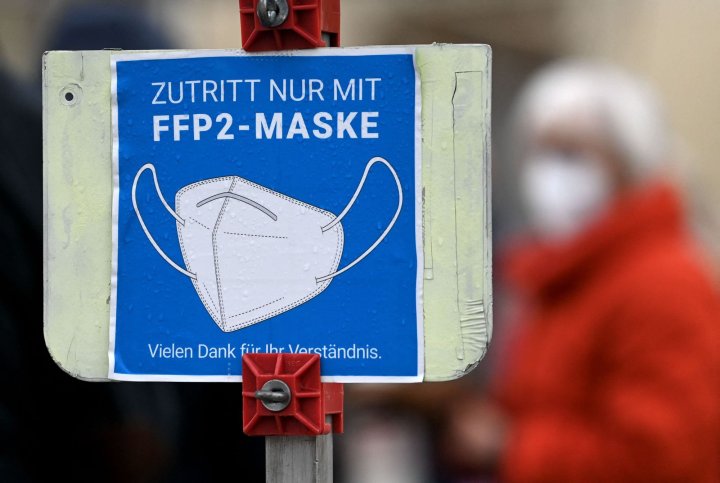
Germany surpasses 100,000 daily Covid-19 cases for first time
Germany reported 112,323 new coronavirus cases on Wednesday, a new single-day record as the health minister said the peak had not been reached and compulsory vaccination should be introduced by May. Germany's tally of Covid-19 infections now stands at 8,186,850, the Robert Koch Institute (RKI) for infectious disease said. The death toll also rose by 239 on Wednesday to reach 116,081.
Health Minister Karl Lauterbach said he expected the wave to peak in a few weeks as the highly infectious Omicron variant brought Germany's seven-day incidence rate to 584.4 cases per 100,000 people. "I think we will reach the peak of the wave in mid-February, and then the number of cases could fall again, but we haven't reached the peak yet," Lauterbach told RTL broadcaster late on Tuesday. Lauterbach said he believed that the current number of unreported cases could be around two times bigger than the known figures. He said compulsory vaccination should be introduced quickly, in April or May, to avoid another wave of infections with possible new variants in autumn.
State local aid strengthened cities' Covid response - Yellen
The $350 billion in coronavirus relief funds for state and local governments has allowed US cities to respond stronger and more nimbly to an ever changing Covid-19 pandemic, US Treasury Secretary Janet Yellen said on Wednesday.
In remarks prepared for delivery to a meeting of the US Conference of Mayors, Yellen said state and local governments have been creative in using the funding from last year's American Rescue Plan to meet different needs at different times. "This, I think, is some of what the $350 billion did: When Omicron started spreading around our cities, it did not find them broke and broken; it found them much readier to respond," she said, referring to the State and Local Fiscal Recovery Fund.
"Rather than one burst of money that could only be spent in certain ways, it called for sustained funding, and our Treasury team has worked hard so you can use the money as flexibly as possible," she added. Yellen cited several examples of local uses of the funds, from $1,000 signing bonuses for new teachers at child-care centers in Columbus, Ohio, to Hawaii reversing its decision to furlough 10,000 state employees. Minnesota has authorized over $80 million in funds from the program for health needs from rapid Covid-19 tests to emergency surge staffing in hospitals, while St. Louis used $58 million from its allocation to spare residents from evictions and homelessness, supplementing rental assistance funds, she said.
She added that the American Rescue Plan funding allowed cities to move from fighting fires to "start building a better post-COVID world." Yellen struck an optimistic tone on the Biden administration's sweeping 'Build Back Better' social and climate spending bill, despite contentious congressional negotiations clouding its future. "While we don’t know the final form this will take, it will revolutionize how we care for children in this country, invest in climate change, and overhaul the international tax system to ensure corporations pay their fair share," she said.
Hong Kong hamster cull sparks fear of owners abandoning pets
A mass hamster cull in Hong Kong sparked fears among animal welfare groups on Wednesday that panicky people would abandon their pets after 11 of the rodents from one petshop in the city tested positive for Covid-19.
The local Society for the Prevention of Cruelty to Animals (SPCA), which runs veterinary clinics, told Reuters it received 'numerous' enquiries from worried pet owners, asking what to do about the latest scare. "We urge the pet owners not to panic or abandon their pets," SPCA said in a statement.
Scientists around the world and Hong Kong health and veterinary authorities have said there was no evidence that animals play a major role in human contagion with the coronavirus. But having pursued a policy of zero tolerance for Covid-19, Hong Kong government officials took no chances after a series of recent infections with the Delta variant were traced back to a worker at a pet shop. Hundreds of samples were collected from animals, including rabbits and chinchillas, but only the hamsters tested positive for Covid-19, resulting in officials giving orders for some 2,000 hamsters from 34 pet shops to be put down 'humanely.'
SPCA listed ways to maintain strict personal hygiene for the safety of humans and animals. "Never kiss your pets. Do not cough or snort at your pets. If you have symptoms of Covid-19, you should keep your distance from animals," it said, stressing that owners handling animals should always wash their hands afterwards. A hamster concern group, Life on Palm, said on Facebook it had also received around 100 inquiries regarding hamsters following the cull.
Dozens of pet shops were asked to close, while imports and sales of small mammals were suspended. Buyers of hamsters after 22 December 2021 were asked to hand them to authorities for culling and not leave them on streets. It was unclear how many had been handed in.
Grammys postponed and moved to Las Vegas over too many Omicron risks
The Grammys were set to take place in Los Angeles 31 January but on Tuesday the Recording Academy announced a change of plans. The awards ceremony will be postponed until 3 April and moved to Las Vegas and be broadcast live from the MGM Grand Garden Arena.
The Recording Academy cited "too many risks" from the Omicron variant.
Covid-19 has been spreading around the world for just over two years and governments and health experts have been doing their best to tackle the virus that is continually evolving. Likewise, their efforts have been adapting to a situation that is constantly developing, juggling policies, solutions and restrictions.
Recently, Dr Rafael Bengoa spoke with Mario Espinosa from AS to answer questions about the future of the covid-19 pandemic, policies governments are implementing and the spread of Omicron variant.
Last week President Joe Biden announced that his administration would make high-quality face masks available for free for all Americans as the United States battles against a surge in covid-19 cases fuelled by the Omicron variant.
In his remarks from the White House, Biden said: "I know we all wish could finally be done with wearing masks, I get it, but they are a really important tool to stop the spread, especially of the highly transmissible Omicron variant.”
The legislation will ensure that everyone receives a package with three N95 masks from the federal government, but the administration has not yet confirmed when the distribution will begin.
“I know that for some Americans, the mask is not always affordable or convenient to get,” Biden said. “Next week we’ll announce how we’re making high-quality masks available to the American people for free.”
WHO says no evidence healthy children, adolescents need covid-19 boosters
There is no evidence at present that healthy children and adolescents need booster doses of covid-19 vaccine, the World Health Organization's chief scientist Soumya Swaminathan said on Tuesday.
Public health experts say vaccine equity a must to end pandemic
Vaccine equity is the best way to get out of the current pandemic phase of the coronavirus epidemic, the world's top public health experts said in a panel at Davos on Tuesday.
New infections of covid-19 are soaring in California, currently around four times the number during last winter’s surge. The fast-spreading Omicron variant is the culprit, which is around four times as infectious as the original strains of the virus and up to twice as contagious as the Delta variant.
Public health officials and experts think the end of the surge may be in sight. If the Omicron surge hasn’t peaked already, then it should do so in the next week or so. The number of hospitalizations lags behind new case numbers, but the stressed hospital system in California could see relief by the end of the month.
The fast-spreading covid-19 Omicron variant has pushed new infection rates sky-high leaving researchers scrambling to unlock its secrets. So far, evidence suggests that the strain that was first discovered in mid-November causes less severe illness than the Delta variant, but it is still dangerous.
Much of the knowledge on Omicron has come from observations of those who have been infected but there are still no scientific studies. Although the virus behaves somewhat differently to prior covid-19 variants, health experts warn that people should assume that Omicron too can cause long covid until proven otherwise.
Hong Kong hamsters face cull after Covid-19 infection
Authorities in Hong Kong have ordered for 2,000 hamsters and other small rodent pets to be culled after suspicions that they could be responsible for infecting a 23-year-old pet shop worker with Covid-19. Eleven samples from hamsters at the Little Boss pet shop tested positive for the Delta variant of Covid-19, and while there is no scientific evidence to show that pets can transmit the SARS-CoV-2 virus to humans, the rodents will be killed as a precaution.
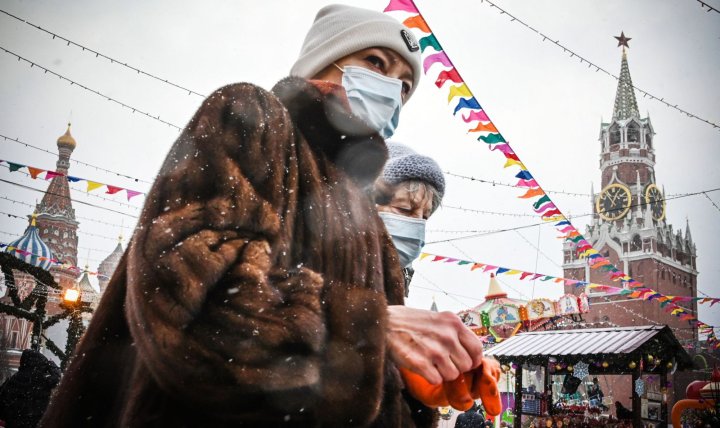
Moscow mayor extends curbs and WFH to April
The mayor of Moscow said on Tuesday he was extending Covid-19 home-working rules and guidance to protect elderly people until 1 April as the city braces for a sharp rise in infections with the Omicron variant.
"Given the rapid and wide spread of Omicron, it is clear that the workload of outpatient clinics will increase sharply," Mayor Sergei Sobyanin said. "For clinics to cope with their increased work load, more doctors have been put on duty... We have a few difficult weeks ahead of us."
Moscow imposed rules from late October to the end of February requiring people over 60 to stay at home unless they were vaccinated or had recovered from Covid, and obliging businesses to move at least 30% of staff to remote work. Sobyanin said he was extending the restrictions to 1 April.
Omicron has pushed Covid-19 case figures to record highs in parts of western Europe and the United States but the variant has been slower to hit Russia, where daily Covid-19 cases have fallen from a peak of 41,335 registered in early November. On Tuesday it reported 31,252 new cases and 688 deaths in the previous 24 hours. "As of this morning, there were 1,682 cases of Omicron in Russia, but we understand that there are many more," Deputy Prime Minister Tatiana Golikova said at a televised meeting of the government coronavirus taskforce.
Moderna CEO says data for Omicron-specific shot likely available in March
Moderna Inc's vaccine candidate against the Omicron variant will enter clinical development in the next few weeks and the company expects to be able to share data with regulators around March, CEO Stephane Bancel said on Monday.
"The vaccine is being finished ... it should be in the clinic in coming weeks. We are hoping in the March timeframe to be able to have data to share with regulators to figure out next steps," Bancel said at the World Economic Forum's virtual Davos Agenda conference.
Moderna is also developing a single vaccine that combines a booster dose against covid-19 with its experimental flu shot. Bancel said the best case scenario was the combined Covid/flu vaccine would be available by the fall of 2023, at least in some countries.
"Our goal is to be able to have a single annual booster so that we don't have compliance issues where people don't want to get two to three shots a winter."
Merck signs supply deal with UNICEF for 3 mln courses of Covid-19 pill
Merck & Co Inc and partner Ridgeback Biotherapeutics said on Tuesday they had signed an agreement with the United Nations Children's Fund (UNICEF) to supply up to 3 million courses of their Covid-19 antiviral pill. Merck would supply the pill, molnupiravir, to UNICEF through the first half of 2022 for distribution in more than 100 low- and middle-income countries upon regulatory authorizations, the companies said.
The pill received authorization from the US Food and Drug Administration in December and has also been authorized in several other countries including India, Mexico and the UK. Many countries have signed supply deals with Merck for the drug. Merck said in January it expects molnupiravir to be effective against the highly contagious Omicron variant, which has driven a surge in Covid-19 cases and hospitalizations across the world.
Spain's Covid-19 booster program slower than expected
Spain is one of the most vaccinated countries in the world in the fight against Covid-19 with just over 90% of the population over the age of 12 having receiving both doses of the vaccine. The booster program however is going at a much slower pace. Booster shots are not mandatory but are available for anyone over 40 who has had two shots of the Pfizer, Moderna or Astrazeneca vaccines or one shot of the Janssen vaccine.
Nine out of 10 citizens aged over 70 have had a third dose of a vaccine, while for the 60-69 group the figure is 84%. More than half of the 50-59 group has also had a booster shot, as have more than a third of those aged 40-49. Among children aged between five and 11, 44% have had a first dose of the pediatric vaccine so far.
Denmark ends lockdown as cases hit new record
Denmark registered a record number of coronavirus infections on Monday, as cinemas, museums and other cultural institutions reopened after a month-long covid-19 lockdown.
The Nordic country registered 28,780 new cases in the space of 24 hours and the number of coronavirus-related hospitalisations rose to 802, the highest in a year.
Still, health authorities said earlier this month that the now-predominant Omicron variant was milder than initially thought and that around 29% of those in hospital were there due to reasons other than covid-19.
Since a peak of 82 on 6 January, the number of covid-19 patients in intensive care has fallen steadily to 52 on Monday.
As a consequence, lawmakers last week agreed to ease restrictions, including reopening theatres, cinemas, museums, entertainment parks and botanic gardens, and allow limited spectators at indoor and outdoor sports events.
Denmark has high support for covid-19 vaccination, with four out of five having received two jabs and just over half of the population with three jabs.
Thailand to lower COVID-19 alert, ease curbs as infections slow
Thailand will lower its Covid-19 alert level and is considering easing more restrictions to boost its economy, its health minister said on Tuesday, in response to a slower infection rate.
Among measures being considered are establishing more 'sandbox' areas for tourists, who can skip quarantine if they stay in specified areas for seven days and undergo two Covid-19 tests. Nightclubs, pubs and bars will remained closed for now, however, Health Minister Anutin Charnvirakul told reporters, adding the Covid-19 alert level will be lowered to 3, from 4, on the government's 5-level system.
New Sandbox areas could include Chiang Mai, Chonburi, Khon Kaen and Samut Prakan provinces, he said. The scheme, a calibrated move to rebuild Thailand's decimated tourism sector, currently operates in Phuket, Phang Nga, Krabi and Koh Samui. Anutin on Monday said he would propose the return of a 'Test and Go' scheme that allows free movement to tourists who pass one Covid-19 test on arrival.
Thailand has recorded 2.3 million cases of Covid-19 and almost 22,000 deaths overall. Nearly two-thirds of its residents are vaccinated and 13.5% have received boosters.
French covid hospitalisations see biggest jump since Nov 2020
The number of people with covid-19 in French hospitals rose by 888 to 25,775, the health ministry said on Monday, the biggest one-day increase since early November 2020 - before the start of the country's vaccination campaign.
The last time the number of covid patients was over 25,000 was on 17 December 2020. Health ministry data on Monday also showed that the number of people with covid-19 in intensive care units rose by 61 to 3,913, after being flat to stable for four days.
France's Institut Pasteur said last week that it expected to see a peak of new Omicron variant coronavirus infections in mid-January, followed by a peak in hospital admissions in the second half of January.
On Sunday, the ministry reported more than 278,000 new infections, which was a decline of 6% against a week earlier and the first week-on-week fall this year.
On Sunday, the seven-day moving average of new infections fell to 294,452, after setting a record high of just over 297,000 on Saturday. That was the first fall time since mid-November, when new infections averaged around 10,000 per day.
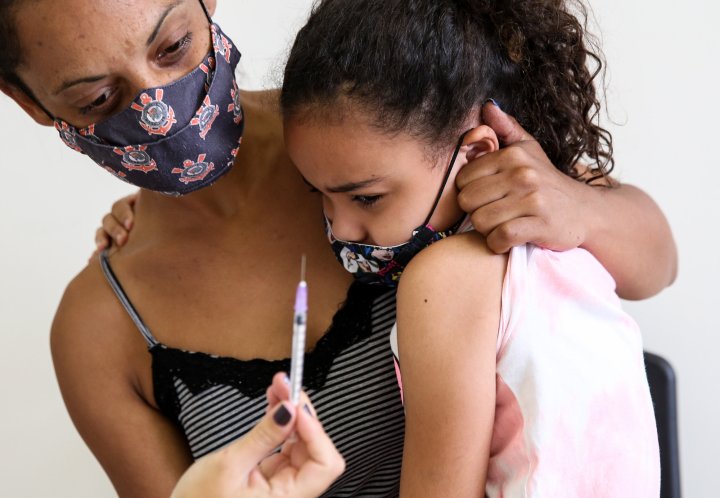
Mayara da Silva Alves receives a dose of Pfizer vaccine as part of the first group of children under 12 years of age to be part of the immunization campaign against covid-19 in Brazil.
As Omicron cases increased in the last week, State Governments decided to start vaccinating children between 5 and 11 years old.
Photo by Alexandre Schneider/Getty Images
While new data is showing the booster shot does not necessarily slow down the transmission of the more contagious Omicron variant, it has been shown to reduce the severity of illness. However, for millions avoiding ineffective has not been possible before they were able to get their third shot.
Read our full coverage for the details as well as information on how long a person is contagious with the Omicron variant.

Japan PM plans stronger Covid curbs for Tokyo, 12 other regions
Japanese Prime Minister Fumio Kishida said on Tuesday he planned to impose a state of quasi-emergency, meaning stronger Covid-19 curbs on dining and gatherings, on 13 regions including Tokyo from 21 January to 13 February. He said the government had halted a programme where those vaccinated or with negative test results would be exempted from coronavirus restrictions as virus cases jumped.
Good morning and welcome to our live blog for Tuesday 18 January 2022, covering the latest news on the spread of the Omicron variant of Covid-19, with a particular focus on the situation in the United States.
- Joseph Biden
- Moderna
- Pfizer
- Washington D.C.
- Covaxin
- AstraZeneca
- Johnson & Johnson
- Science
- Coronavirus Covid-19
- Pharmaceutical industry
- Vaccines
- Pandemic
- Coronavirus
- Pharmacy
- United States
- Virology
- Outbreak
- Infectious diseases
- Vaccination
- North America
- Microbiology
- Diseases
- Preventive medicine
- Medicine
- Enterprises
- America
- Economy
- Biology
- Health
- Industry
- Life sciences
